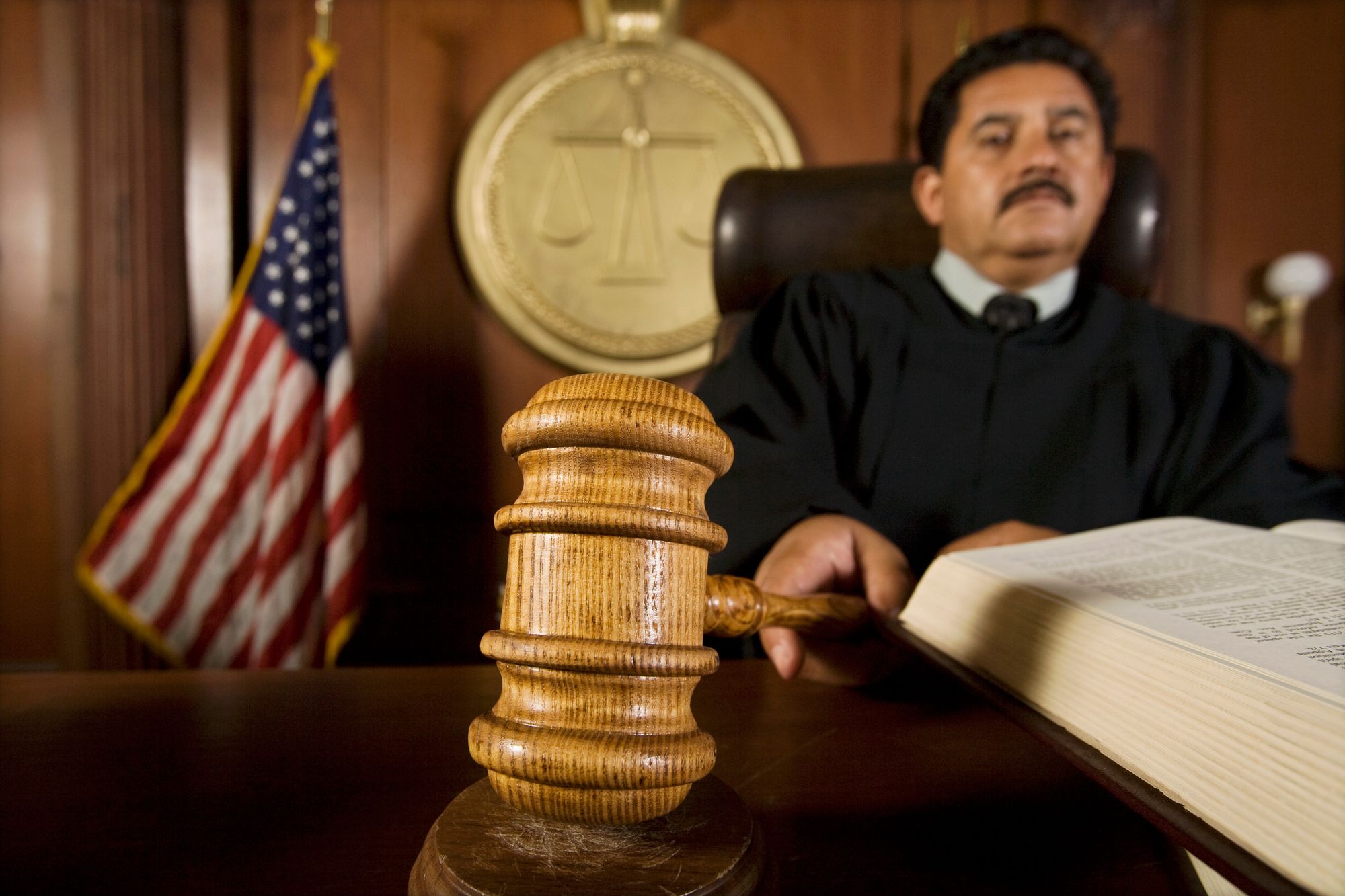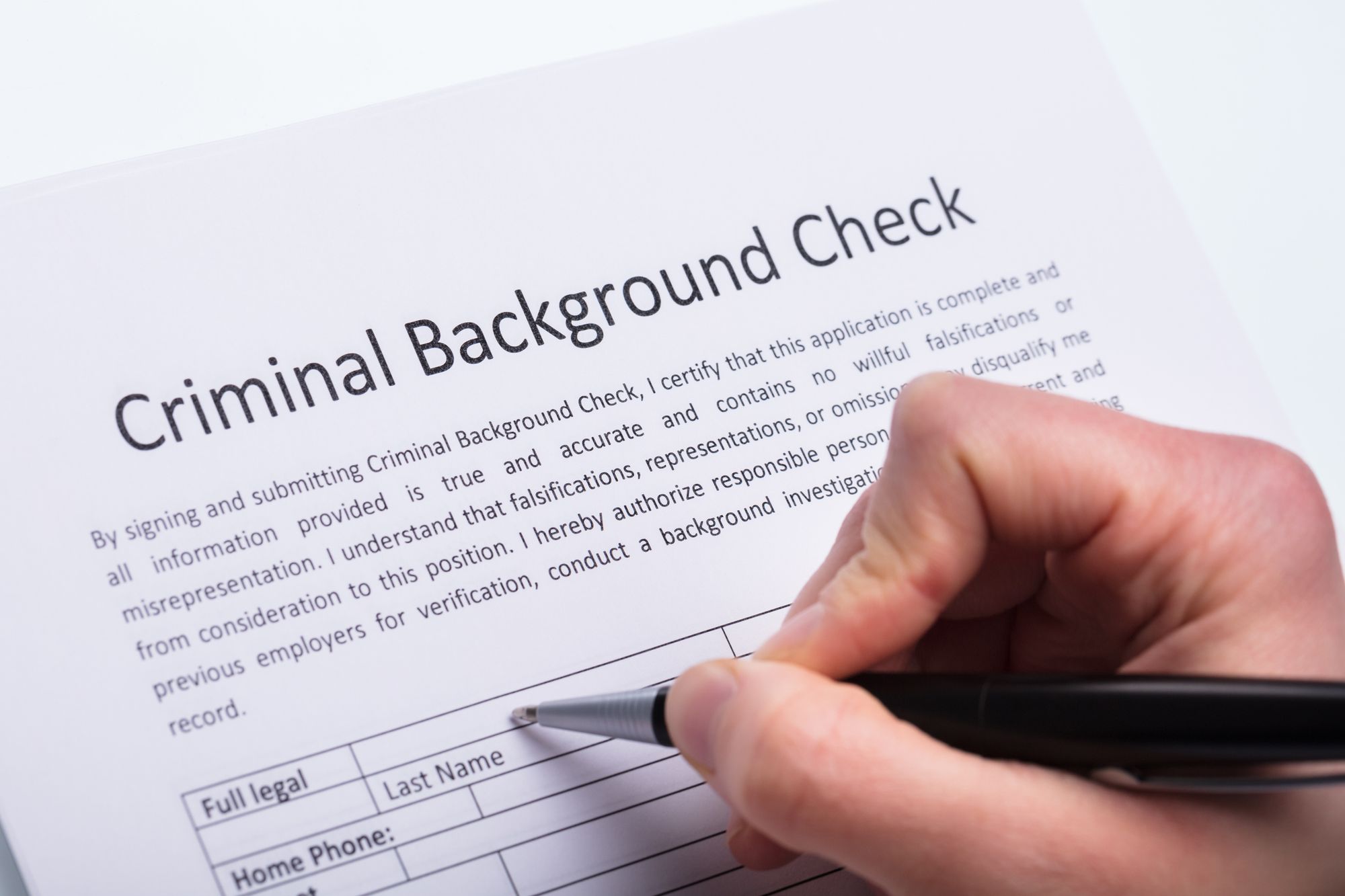Ariel Frogge
Legal Lingo Explained: Breaking Down the Meaning of “Awaiting Disposition”
If you're unfamiliar with legal jargon and need to know what "awaiting disposition" means, we'll cover every aspect in today's article.

While seemingly complex at first glance, the term "awaiting disposition” is an essential stage in the judicial process that speaks to a case that finds itself in a state of anticipation, awaiting a decisive verdict or resolution. This stage may manifest itself in numerous instances, from the period before a trial to following the contested verdict.
For people undergoing background checks, "awaiting disposition" will likely appear in the results. This typically means a criminal case is pending court action or appeal from a previous verdict. In such situations, employers must understand what legal lingo, such as "awaiting disposition," means to make an informed hiring process.
Run A Free Background CheckAwaiting Disposition Meaning: The Breakdown
In the realm of criminal cases, arrests, and prosecutions, the term "disposition" refers to the official standing or outcome of a particular proceeding. This outcome documentation serves as the criminal justice system's means of tracking the resolution of a case or the steps it'll take moving forward. Dispositions hold significance in background check reports, whether as updates on the case's progression or as the conclusive outcome.
Grasping the various disposition types is vital when interpreting background reports. Although dispositions don't provide an exhaustive picture - as they belong to a distinct category from criminal sentences - they still play a crucial role in the decision-making process during pre-employment screening.
Factors That Contribute to A Case Being Stalled In the "Awaiting Disposition" Phase
One may ponder the reasons why a case would linger in the "awaiting disposition" phase. Below, we delve into the intricacies of factors contributing to such a scenario, giving a broader and clearer understanding of its significance within the legal framework.
1. Backlogs in the court system: An unfortunate reality in many court systems is the existence of an overwhelming number of cases that have amassed over time, leading to a bottleneck-like effect. Consequently, this delay can result in cases being in an "awaiting disposition" state for an extended duration.
2. Requirement for further investigation: A case may necessitate additional scrutiny or investigation before a resolution can be reached. This might include gathering more evidence, questioning new witnesses, or reevaluating testimonies. As a result, the case would remain in the "awaiting disposition" phase until the required information is attained and assessed.
3.Complications arising during the trial process: The trial process is often riddled with unforeseen events or complexities that may impede the progress of a case, indirectly contributing to its "awaiting disposition" status. Such complications can include changes in legal representation, mistrials, or even the introduction of new evidence that alters the direction of the trial.
Awaiting Disposition and Background Checks: Unraveling the Connection
Grasping the concept of awaiting disposition meaning becomes increasingly critical when delving into the realm of background checks. Frequently conducted by human resource departments, landlords, and organizations in charge of volunteer and licensing activities, background checks form an integral part of various screening processes. Encountering the term "awaiting disposition" on a background check can certainly raise eyebrows for the individual assessing a candidate's history.
Background checks serve the crucial purpose of validating a person's identity, corroborating their qualifications, and pinpointing any instances of criminal conduct. These checks benefit both applicants, providing a sense of security, and organizations, as they help maintain a safe and conducive environment. However, coming across the term "awaiting disposition" during a background check might instigate confusion and discomfort, given its implication of an unresolved legal issue.
Interpreting the status of "awaiting disposition" can be challenging for those administering background checks, leading to potential discrepancies and inconsistencies in outcomes. Increased diligence is required during the decision-making process to prevent unfair exclusion or misinterpretation of a candidate's record due to this term.
The Challenges Posed by Awaiting Disposition Cases
Cases that are "awaiting disposition" tend to pose various obstacles, not merely for those within the realm of the legal profession but also for the individuals who find themselves entangled in these complex scenarios. One might inquire about the awaiting disposition meaning, which refers to situations where an unresolved case lingers within the judicial system. When these cases arise, various parties - such as potential employers or landlords - could face concerns regarding the outcomes of background checks.
To say that the uncertainty that hovers over cases "awaiting disposition" leaves all parties involved in a state of limbo is quite accurate. From the perspective of a possible employer or landlord, the expression "awaiting disposition" might evoke apprehension. They may wonder if the individual poses a risk to their enterprise or property and how an unresolved case could shape their potential future relationship.
From the applicant's standpoint, such a delayed status can be equally problematic. For example, job seekers may find that their applications are being held up due to an unresolved case or that they are facing unjust exclusions from potential employers. This could lead to significant stress and anxiety as they may feel unfairly judged based on outdated information or inaccurate interpretations.
The challenge of untangling the complexity surrounding cases "awaiting disposition" cannot be understated. Those involved in background checks need to develop an acute understanding of this term and its implications, helping them make informed decisions during pre-employment. By doing so, they can help ensure fair outcomes that provide justice to all parties concerned.

Navigating the Impact of Awaiting Disposition
First and foremost, it's crucial to highlight the potential consequences of having an "awaiting disposition" case. Individuals in such predicaments may struggle to find employment, secure housing, or pursue educational objectives. This is because unresolved legal matters can create concerns for potential employers, property owners, and academic institutions, compelling them to tread carefully while assessing an individual's application.
Knowing your rights and understanding the legal procedures concerning an "awaiting disposition" case is paramount. If you ever find yourself in this situation, follow these steps to navigate the process successfully:
Consult with a Legal Professional
It is vital for anyone dealing with an "awaiting disposition" case to seek advice from a qualified attorney. A knowledgeable lawyer understands the legal intricacies and can offer valuable input on how the case may affect different aspects of your life. Moreover, an attorney plays a crucial role in assisting you with necessary actions, such as:
- Verifying that all mandatory documentation is submitted correctly and without delay
- Acting as your representative in court, if needed
- Engaging in negotiations with the opposition party on your behalf
- Informing you about any pertinent laws and regulations
Grasping the meaning of an "awaiting disposition" case could be the key to avoiding potential pitfalls in your personal and professional life. You can navigate the area by consulting with an experienced legal professional and being proactive in handling your case.
Embrace Openness
In the event of an unresolved matter arising during a background examination, embracing openness is the most effective course of action. Employers, property owners, and educational institutions value candor in applications, and this strategy may help alleviate any potential apprehensions related to one's "awaiting disposition" status. To demonstrate openness, it is essential to:
- Clearly state the existence of an ongoing legal matter
- Offer a concise explanation outlining the reasoning behind the case
- Present any pertinent evidence, documents, or testimonies to support your stance
Keep in mind that the more exact your information, the higher the chances that decision-makers will view you in a positive light.
Monitor The Progress of Your Case
In a situation where your case remains in the "awaiting disposition" phase, it is crucial to be well-informed regarding any advancements, as these could potentially affect the outcome of background checks. To make certain that you remain updated with the latest information, remember to:
- Keep a strong line of communication with your legal representative
- Regularly inquire with the court administrator or other related law practitioners for any new details
- Quickly notify all involved individuals about any alterations or enhancements concerning your case
Educate Yourself on the Legal Process
Knowledge is power. Therefore, familiarizing yourself with the legal system and associated procedures will help you understand the meaning of the awaiting disposition and make informed decisions in navigating your case. Researching online resources, joining legal forums, and attending workshops can all be instrumental in building your understanding of the legal framework surrounding "awaiting disposition" cases.
Final Thoughts on Awaiting Disposition
While it can sometimes be difficult to understand all the nuances of legal language, understanding key concepts like 'awaiting disposition' is essential for anyone navigating their way through any kind of judicial system. Knowing what awaits them in their legal journey can offer a much-needed sense of clarity and assurance.
To sum up, the "awaiting disposition" concept exhibits perplexing complexity within the judicial system. Its presence in background checks can fill scrutiny and unease for all parties involved. However, it is fundamental to remember that this term does not connote guilt but reflects an unresolved case within the legal process.
As such, patience and understanding should be extended to those whose cases linger in this state of limbo. Awareness combined with transparency and legal support will help everyone involved move forward in an informed and equitable manner.
Run A Free Background Check



